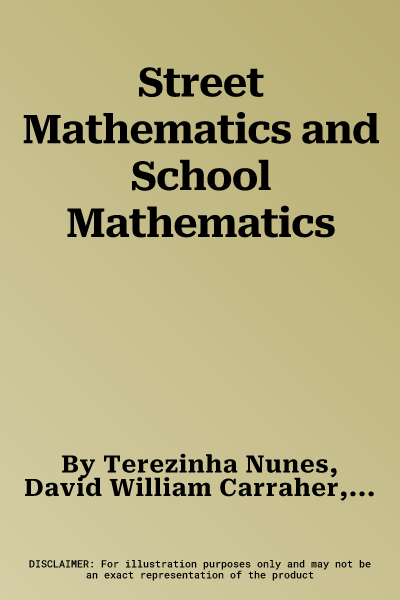Terezinha Nunes
(Author)Street Mathematics and School MathematicsHardcover, 30 April 1993

Temporarily out of stock
Free Delivery
Cash on Delivery
15 Days
Free Returns
Secure Checkout

Part of Series
Learning in Doing: Social, Cognitive and Computational Persp
Part of Series
Learning in Doing
Part of Series
European Monographs in Social Psychology
Print Length
180 pages
Language
English
Publisher
Cambridge University Press
Date Published
30 Apr 1993
ISBN-10
0521381169
ISBN-13
9780521381161
Description
Product Details
Book Format:
Hardcover
Date Published:
30 April 1993
Dimensions:
22.81 x
15.19 x
1.6 cm
ISBN-10:
0521381169
ISBN-13:
9780521381161
Language:
English
Location:
New York
Pages:
180
Publisher:
Series:
Weight:
385.55 gm